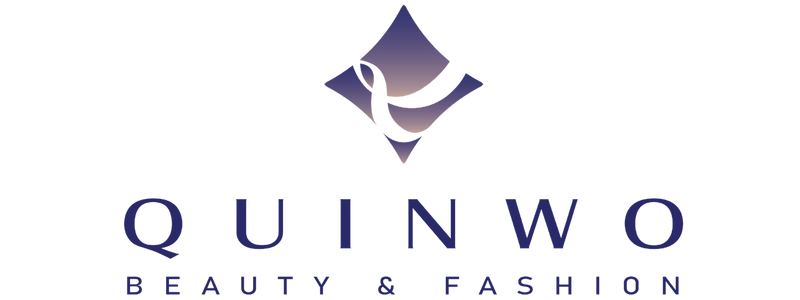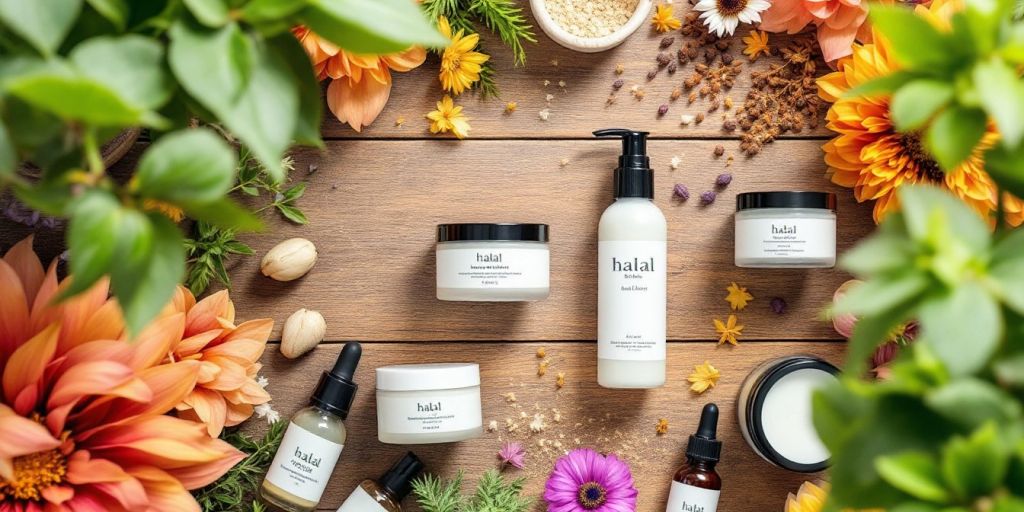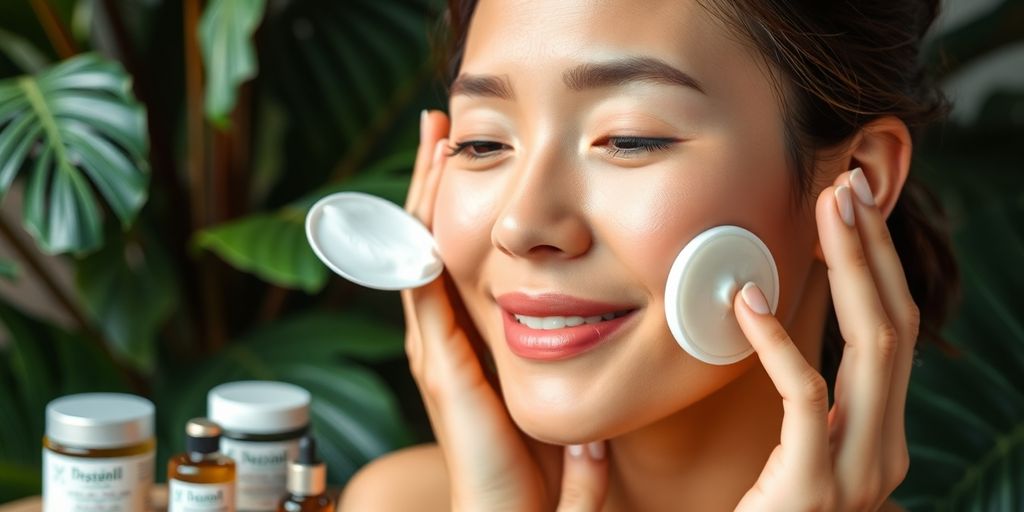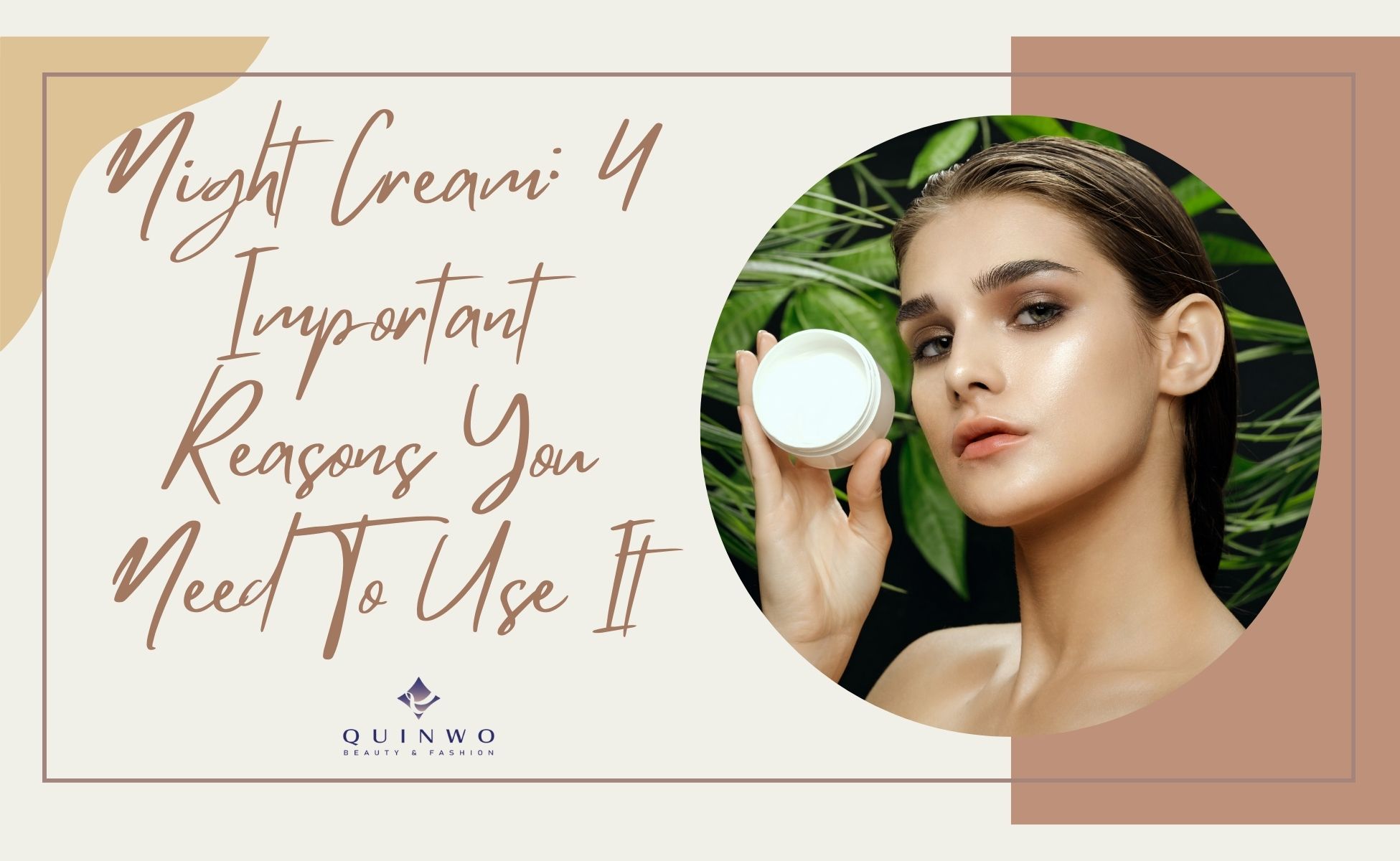Discovering Halal Beauty Products in Malaysia: A Guide to Ethical Cosmetics
In Malaysia, the demand for halal beauty products is growing rapidly. These products are not just about being permissible under Islamic law; they also focus on ethical sourcing and sustainable practices. This guide aims to help you understand halal beauty products in Malaysia, from their definitions to the benefits they offer.
Key Takeaways
- Halal beauty products are made according to Islamic guidelines, ensuring they are safe and ethical.
- They can include animal-derived ingredients as long as they are sourced responsibly.
- The halal beauty market in Malaysia is expanding due to rising consumer awareness and demand.
- Identifying authentic halal products involves recognizing certification logos and reading labels carefully.
- Sustainable practices, like eco-friendly packaging, are becoming more common in halal beauty brands.
Understanding Halal Beauty Products
Definition and Importance
Halal beauty refers to cosmetics and personal care products that are permissible under Islamic law. These products do not contain any ingredients derived from non-halal sources, ensuring they align with the values of Muslim consumers. The importance of halal beauty lies in its commitment to ethical practices and the well-being of users.
Halal vs. Vegan and Cruelty-Free
While halal products are often confused with vegan and cruelty-free options, they are not the same. Here’s a quick comparison:
| Feature | Halal | Vegan | Cruelty-Free |
|---|---|---|---|
| Animal Ingredients | No animal-derived ingredients allowed | No animal products allowed | No animal testing allowed |
| Certification | Halal certification required | Vegan certification required | Cruelty-free certification required |
| Ethical Focus | Adheres to Islamic law | Focuses on animal rights | Focuses on testing methods |
Common Misconceptions
Many people think halal beauty products are only for Muslims, but they can be beneficial for everyone. Here are some common misconceptions:
- Halal products are only for Muslims: Anyone can use halal products, as they are often made with natural ingredients.
- Halal means low quality: Many halal brands prioritize high-quality ingredients and ethical sourcing.
- All halal products are expensive: There are affordable halal options available in the market.
Halal beauty products not only cater to Muslim consumers but also promote a cleaner, more ethical beauty industry for everyone.
The Rise of Halal Beauty Products in Malaysia
Market Growth and Trends
The demand for halal beauty products in Malaysia is booming. This growth is fueled by a rising awareness among consumers about the importance of halal compliance. With the Muslim population increasing, brands are focusing on creating products that meet these standards.
Consumer Demand
Consumers are now more educated about what they put on their skin. They prefer products that are not only halal but also safe and effective. Influencers like Nadia Rahman and Aisha Zain are leading the way by promoting halal beauty products on social media, showcasing their benefits and effectiveness.
Impact on Local Brands
Local brands are stepping up to meet this demand. Many are now offering a range of halal-certified products, from skincare to makeup. This shift is not just about compliance; it’s about creating a unique identity in a competitive market.
- Key Factors Driving Growth:
- Increasing Muslim population.
- Higher consumer awareness.
- Demand for safe and ethical products.
The halal beauty market is not just a trend; it’s a movement towards more ethical and responsible consumption.
As consumers continue to seek out halal options, the beauty industry in Malaysia is poised for exciting developments. Brands that embrace this change will likely thrive in the evolving market.
Key Ingredients in Halal Beauty Products

Permissible Ingredients
When it comes to halal beauty products, the ingredients used are crucial. Only ingredients that comply with Islamic law are allowed. This means avoiding any components derived from prohibited sources. Here are some common permissible ingredients:
- Plant-based oils (like coconut and olive oil)
- Natural extracts (such as aloe vera and chamomile)
- Minerals (like zinc oxide and titanium dioxide)
Ingredients to Avoid
To ensure a product is truly halal, it’s essential to steer clear of certain ingredients. Here’s a quick list of what to avoid:
- Alcohol – often found in many cosmetics, it’s a major no-no.
- Pork-derived substances – including glycerin and collagen.
- Animal by-products – unless sourced from halal-certified animals.
Ethical Sourcing
Ethical sourcing is a big deal in the halal beauty industry. Brands are now focusing on how they obtain their ingredients. This means:
- Working with suppliers who provide halal-certified materials.
- Ensuring that all ingredients are safe and suitable for consumers.
- Maintaining transparency about the sourcing process.
Remember: The presence of alcohol or any other restricted component is one of the most crucial factors to take into account when selecting a halal cosmetic product.
By understanding these key ingredients, consumers can make informed choices about the halal beauty products they use, ensuring they align with their values and beliefs.
Popular Halal Beauty Brands in Malaysia
Local Brands
Malaysia is home to several standout Halal beauty brands that cater to diverse needs. Here are a few:
- Daughters of Malaya: Founded by Dayana Zul and Rai Ahmad, this brand emphasizes transparency and ethical sourcing. They focus on vegan and Halal-certified ingredients, ensuring customer trust.
- Pretty Suci: Meaning "beautiful and clean," this brand is a game-changer in the Halal cosmetics scene, founded by young entrepreneurs who prioritize modern Muslim beauty.
- Safi: Known for its natural and botanical-based products, Safi offers affordable skincare solutions suitable for all skin types.
International Brands
Several international brands also offer Halal-certified products in Malaysia:
- SimplySiti: Launched by singer Siti Nurhaliza, this brand is recognized for its quality and inclusivity, providing a range of makeup and skincare products.
- Wardah: An Indonesian brand that has gained popularity in Malaysia, known for its commitment to Halal principles and effective formulations.
Brand Spotlights
- Daughters of Malaya: This brand stands out for its commitment to sustainability and ethical practices, making it a favorite among conscious consumers.
- SimplySiti: With a wide range of products, it caters to various skin types and concerns, ensuring everyone can find something suitable.
The Halal beauty market in Malaysia is booming, with a projected growth rate of 24% annually. This trend reflects a growing awareness and demand for ethical cosmetics among consumers.
In conclusion, whether you prefer local or international brands, Malaysia offers a rich selection of Halal beauty products that align with ethical values and cater to diverse beauty needs.
Halal Certification Process for Beauty Products
Certification Bodies
In Malaysia, the main body responsible for halal certification is JAKIM (Department of Islamic Development Malaysia). They ensure that products meet the halal standards set by the Malaysian government. There are also around 122 other certification bodies, including local mosques and NGOs, that help in this process.
Steps to Certification
To get halal certification, manufacturers must follow these steps:
- Application Submission: Submit an application to JAKIM with all necessary documents.
- Factory Inspection: Undergo a thorough inspection of the manufacturing facility to ensure compliance with halal practices.
- Approval and Certification: Once approved, the product receives a halal logo, indicating it meets all halal requirements.
Maintaining Certification
After obtaining halal certification, companies must:
- Regularly audit their processes to ensure ongoing compliance.
- Keep records of all ingredients and their sources.
- Train staff on halal practices to prevent contamination.
Maintaining halal integrity is crucial for consumer trust and brand reputation.
By following these steps, beauty brands can ensure their products are not only halal but also of high quality, meeting the expectations of ethical consumers. This process is essential for brands looking to thrive in the growing halal beauty market in Malaysia, where consumer demand for ethical products is on the rise. Halal certification is not just a label; it’s a commitment to quality and integrity.
Benefits of Using Halal Beauty Products
Health Benefits
Halal beauty products are made with cleaner ingredients that avoid harmful chemicals. This means they are often gentler on your skin, reducing the risk of irritation. Many halal products also focus on using natural and organic ingredients, which can be better for your overall health.
Ethical Considerations
Choosing halal cosmetics supports ethical practices. These products are often cruelty-free, meaning no animals are harmed during production. By opting for halal, you are making a choice that aligns with values of compassion and respect for all living beings.
Environmental Impact
Halal beauty brands frequently prioritize sustainable practices. This includes using eco-friendly packaging and sourcing ingredients responsibly. By supporting these brands, you contribute to a healthier planet.
Halal cosmetics not only cater to Muslim consumers but also appeal to anyone seeking ethical beauty options.
Summary of Benefits
| Benefit | Description |
|---|---|
| Health Benefits | Cleaner, safer ingredients for your skin. |
| Ethical Considerations | Cruelty-free and compassionate production. |
| Environmental Impact | Sustainable practices and eco-friendly packaging. |
Tips for Choosing Halal Products
- Look for certification logos on the packaging.
- Read ingredient labels carefully to avoid non-halal components.
- Research brands to ensure they follow ethical practices.
By understanding these benefits, you can make informed choices that not only enhance your beauty routine but also support a more ethical and sustainable industry. Remember, halal beauty products are about more than just ingredients; they represent a commitment to a better world.
Challenges in the Halal Beauty Industry
Regulatory Hurdles
The halal beauty industry faces significant regulatory challenges. Manufacturers must ensure that their products meet strict halal standards, which can be complex and vary by region. This often requires extensive documentation and verification processes.
Consumer Awareness
Many consumers are still unaware of what halal beauty products entail. This lack of knowledge can lead to skepticism about the authenticity of products. Influencers can play a crucial role in educating the public about halal standards and the importance of certification.
Market Competition
The halal beauty market is becoming increasingly competitive. With many brands entering the space, standing out is essential. Companies must focus on quality, ethical sourcing, and transparency to gain consumer trust.
The halal beauty industry is growing, but it must overcome challenges to ensure integrity and trust.
Summary of Key Challenges
| Challenge | Description |
|---|---|
| Regulatory Hurdles | Complex standards and verification processes. |
| Consumer Awareness | Lack of understanding about halal products among consumers. |
| Market Competition | Increasing number of brands leading to fierce competition. |
Tips for Overcoming Challenges
- Educate Consumers: Use social media and influencer partnerships to spread awareness about halal beauty products.
- Ensure Transparency: Clearly label products and provide information about sourcing and certification.
- Focus on Quality: Prioritize high-quality ingredients and ethical practices to build brand loyalty.
By addressing these challenges, the halal beauty industry can thrive and meet the growing demand for ethical cosmetics.
How to Identify Authentic Halal Beauty Products
Recognizing Certification Logos
When shopping for halal beauty products, look for certification logos. These logos indicate that the product has been verified by a recognized halal certifying body. In Malaysia, the Jakim Halal logo is a key sign of authenticity. Always check for this logo on the packaging to ensure the product meets halal standards.
Reading Ingredient Labels
Understanding ingredient labels is crucial. Here are some tips:
- Avoid haram ingredients: Look out for ingredients like alcohol, pork derivatives, and certain animal fats.
- Check for halal certification: Ensure that the product lists halal certification on the label.
- Research unfamiliar ingredients: If you see an ingredient you don’t recognize, do a quick search to confirm its halal status.
Avoiding Counterfeit Products
With the rise in demand for halal cosmetics, counterfeit products are becoming more common. To avoid these:
- Buy from reputable retailers: Stick to well-known stores or official brand websites.
- Follow influencer recommendations: Many beauty influencers review halal products, providing insights into their authenticity.
- Be cautious of prices: If a product is significantly cheaper than usual, it might not be genuine.
Remember, using authentic halal beauty products not only aligns with your values but also supports ethical practices in the beauty industry. As a consumer, your choices can make a difference!
Future of Halal Beauty Products in Malaysia
Innovations and Trends
The halal beauty market in Malaysia is evolving rapidly. New technologies are being introduced to enhance product quality and safety. Brands are focusing on sustainable practices, which include eco-friendly packaging and ethical sourcing of ingredients. Influencers are also playing a significant role in promoting these innovations, making it easier for consumers to discover new products.
Potential Market Expansion
As the global Muslim population continues to grow, the demand for halal beauty products is expected to rise. Malaysia aims to become a global halal hub, attracting international brands and investors. This expansion will not only benefit local businesses but also provide consumers with a wider range of options.
Role of Technology
Technology is reshaping the halal beauty industry. From online shopping to social media marketing, brands are leveraging digital platforms to reach consumers. Influencers are key in this space, often sharing their experiences with halal products, which helps build trust and awareness among potential buyers.
The halal beauty industry is not just about compliance; it’s about creating a community that values ethical and sustainable practices.
Summary
In summary, the future of halal beauty products in Malaysia looks promising. With innovations, market expansion, and the role of technology, consumers can expect a diverse range of ethical cosmetics that meet their needs.
- Key Points to Remember:
- Innovations in product development
- Growing market opportunities
- Importance of technology in marketing
As the industry continues to grow, staying informed about trends and products will help consumers make better choices.
Highlighted Insights
- The rise of halal cosmetics is driven by a growing awareness among consumers, especially Generation Z, who are keen on ethical products.
- Research shows a positive relationship between attitudes and the intention to choose halal cosmetics, indicating a bright future for this market.
Halal Beauty Products for Different Skin Types

Products for Oily Skin
For those with oily skin, choosing the right halal products is essential. Look for lightweight, oil-free moisturizers and mattifying foundations. Here are some tips:
- Opt for gel-based moisturizers that hydrate without adding extra oil.
- Use powder foundations to control shine throughout the day.
- Incorporate clay masks to absorb excess oil weekly.
Products for Dry Skin
If you have dry skin, hydration is key. Halal beauty products can help nourish and moisturize effectively. Consider these options:
- Creamy moisturizers with natural oils like argan or jojoba.
- Hydrating serums that contain hyaluronic acid for deep moisture.
- Rich, nourishing masks to restore moisture levels.
Products for Sensitive Skin
Sensitive skin requires gentle care. Look for halal products that are free from harsh chemicals. Here’s what to choose:
- Fragrance-free moisturizers to avoid irritation.
- Soothing serums with ingredients like aloe vera or chamomile.
- Gentle cleansers that won’t strip the skin of its natural oils.
Choosing the right halal beauty products can make a significant difference in your skincare routine. Influencers like @beautybyzara often share their favorite halal products tailored for different skin types, making it easier to find what works for you.
Highlighted Brand: Wardah
Wardah is a well-known halal skincare brand that offers high-quality, ethically produced skincare and makeup products. It provides halal-certified formulations that cater to various skin types, ensuring everyone can find their perfect match!
Sustainable Practices in Halal Beauty
Eco-Friendly Packaging
Using eco-friendly packaging is essential for reducing waste. Many halal beauty brands are now opting for:
- Recyclable materials
- Biodegradable options
- Minimalist designs to cut down on excess packaging
This shift not only helps the environment but also appeals to conscious consumers. Influencers like Aisha Zainal advocate for brands that prioritize sustainability in their packaging choices.
Sustainable Sourcing
Halal beauty products often emphasize the importance of sourcing ingredients ethically. Here are some key points:
- Local sourcing to support community farmers.
- Avoiding genetically modified organisms (GMO), as they are considered non-halal.
- Ensuring that all ingredients are free from harmful chemicals.
Green Manufacturing Processes
The production of halal beauty products is increasingly focusing on sustainability. Brands are adopting:
- Energy-efficient manufacturing techniques
- Water conservation practices
- Waste reduction strategies
By choosing halal beauty products, consumers are not just making a choice for their skin but also for the planet.
In conclusion, the halal beauty industry in Malaysia is making strides towards sustainability, ensuring that ethical practices are at the forefront of their operations. This commitment not only benefits consumers but also contributes positively to the environment.
Final Thoughts on Halal Beauty Products
In conclusion, finding halal beauty products in Malaysia is not just about following religious rules; it’s about making smart choices for your skin and the planet. With many brands now offering halal-certified options, shoppers can enjoy a wide range of cosmetics that are both ethical and effective. As more people become aware of what they put on their skin, the demand for halal products will likely keep growing. This shift not only benefits consumers but also encourages companies to be more transparent and responsible. So, whether you’re a seasoned beauty lover or just starting your journey, choosing halal products can be a great way to support ethical beauty.
Frequently Asked Questions
What are Halal beauty products?
Halal beauty products are cosmetics and skincare items that follow Islamic rules. This means they contain ingredients that are allowed in Islam and are made in a clean way.
Are Halal products the same as vegan products?
No, Halal products can have animal ingredients if they are sourced ethically. Vegan products do not contain any animal-derived ingredients at all.
How can I tell if a beauty product is Halal?
Look for a certification logo on the packaging. This logo shows that the product has been checked and approved as Halal.
Why are Halal beauty products important?
They are important because they meet the needs of Muslim consumers who want to use products that align with their beliefs.
Can non-Muslims use Halal beauty products?
Yes, anyone can use Halal beauty products. They are made to be safe and ethical for everyone.
What should I avoid in Halal cosmetics?
Avoid products that contain alcohol, pork-derived ingredients, or anything else that is not allowed in Islam.
Are Halal beauty products better for the environment?
Many Halal brands focus on ethical sourcing and eco-friendly practices, which can be better for the environment.
Will Halal products work for all skin types?
Yes, there are Halal products available for different skin types, including oily, dry, and sensitive skin.




